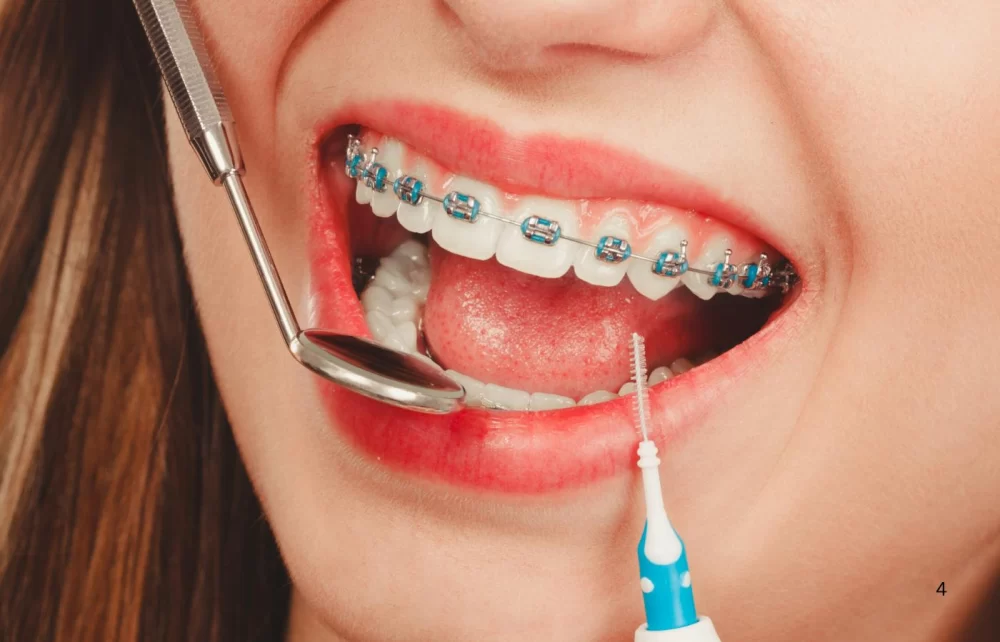
- Understanding Tooth Decay with Braces
- Essential Tips for Preventing Tooth Decay with Braces
- Importance of Oral Hygiene with Braces
- Common Mistakes to Avoid When Using Braces
1. Understanding Tooth Decay with Braces
Wearing braces can be a game-changer for achieving a beautiful smile, but it also brings challenges when it comes to maintaining good oral hygiene. Braces create more nooks and crannies for food particles to get trapped, and this can make it harder to clean your teeth properly. As a result, the risk of tooth decay increases significantly during orthodontic treatment.
When food particles and plaque remain on the teeth for too long, they can lead to the formation of cavities. These cavities are not only painful but can also interfere with the progress of your braces treatment. For people with braces, tooth decay can occur more easily in the areas around the brackets, wires, and bands where cleaning is difficult. If left unchecked, tooth decay may cause permanent damage to the enamel, leading to more complex dental problems down the road.
2. Essential Tips for Preventing Tooth Decay with Braces
To prevent tooth decay while wearing braces, it’s important to adopt good oral hygiene habits and make certain adjustments to your daily routine. Here are some essential tips to help you protect your teeth from cavities:
- Brush After Every Meal: Brushing your teeth after every meal is crucial to remove food particles and plaque from around your braces. Use a soft-bristled toothbrush and fluoride toothpaste. Don't forget to brush along the gumline and the area around each bracket to ensure thorough cleaning.
- Use an Interdental Brush: An interdental brush is a small brush that can clean between the wires and brackets of your braces. It helps remove debris and plaque from hard-to-reach areas, reducing the risk of cavities forming around your braces.
- Floss Regularly: Flossing is essential for removing food particles and plaque between your teeth. Consider using a floss threader, which makes it easier to floss around your braces. If traditional flossing proves difficult, you can use orthodontic floss picks to help.
- Use a Fluoride Rinse: Fluoride mouthwash can strengthen enamel and protect your teeth from decay. Rinsing with fluoride mouthwash after brushing and flossing helps to remineralize enamel and prevent cavities.
3. Importance of Oral Hygiene with Braces
Maintaining excellent oral hygiene is the foundation of preventing tooth decay while wearing braces. Without regular and thorough cleaning, food particles and plaque build-up around the brackets and wires. This not only increases the risk of cavities but also can lead to other issues like gum disease and bad breath.
Orthodontic treatment requires more than just brushing and flossing. It’s essential to pay attention to every aspect of your oral health. Visiting your dentist regularly for check-ups is also vital during your braces treatment. Regular dental visits help catch any early signs of tooth decay and ensure that your braces are functioning properly.
In addition, patients with braces should be mindful of their diet. Sugary foods and drinks can contribute to the formation of plaque and cavities, so it’s best to limit these items, especially sticky foods like caramel or chewing gum, which can get stuck in your braces and increase the chances of tooth decay.
4. Common Mistakes to Avoid When Using Braces
When managing your oral care with braces, it's easy to overlook certain habits that can increase the risk of tooth decay. Below are some common mistakes to avoid:
- Skipping Regular Brushing and Flossing: It can be tempting to skip brushing after meals, especially if you're on the go. However, neglecting to brush can allow plaque and bacteria to build up around your braces, which will increase the chances of developing cavities.
- Using the Wrong Toothbrush: Using a hard-bristled toothbrush can damage your gums and enamel. Stick to a soft-bristled toothbrush that is designed for orthodontic care to ensure gentle but effective cleaning.
- Ignoring Minor Discomfort: If you notice pain, swelling, or unusual tenderness around your braces, it’s important to address it immediately. These could be signs of tooth decay or gum disease. Don't wait for the problem to worsen—see your orthodontist or dentist for advice.
By avoiding these mistakes and following the tips for proper oral care, you can significantly reduce the risk of tooth decay while wearing braces. The key to successful treatment is consistent and thorough care. For products that can help support your braces care routine, visit Dentistry Toothtruth, where you'll find the best recommendations for maintaining a healthy smile throughout your orthodontic journey.







 Diamond Braces Orthodontist: Braces & Invisalign4.0 (746 review)
Diamond Braces Orthodontist: Braces & Invisalign4.0 (746 review) Dr. Marty Margetis5.0 (1 review)
Dr. Marty Margetis5.0 (1 review) Grayhawk Prosthodontics4.0 (48 review)
Grayhawk Prosthodontics4.0 (48 review) Smile Surfers Kids Dentistry5.0 (42 review)
Smile Surfers Kids Dentistry5.0 (42 review) Community Health Care - Lakewood Family Dental Clinic3.0 (23 review)
Community Health Care - Lakewood Family Dental Clinic3.0 (23 review) Vanessa Thai0.0 (0 review)
Vanessa Thai0.0 (0 review) The Importance of Oral Health Education During Pregnancy for a Healthy Pregnancy
The Importance of Oral Health Education During Pregnancy for a Healthy Pregnancy Best Tips for Brushing Your Teeth Properly for Healthy Gums: Essential Techniques for Oral Health
Best Tips for Brushing Your Teeth Properly for Healthy Gums: Essential Techniques for Oral Health Why Skipping Dental Checkups Can Lead to Bigger Oral Health Problems
Why Skipping Dental Checkups Can Lead to Bigger Oral Health Problems Advantages of Porcelain Dental Restorations
Advantages of Porcelain Dental Restorations How Can Diabetes Cause Tooth and Gum Problems? Preventing and Managing Oral Health Issues
How Can Diabetes Cause Tooth and Gum Problems? Preventing and Managing Oral Health Issues Healthy Habits for Promoting Good Oral Health and Hygiene: Tips for a Healthy Smile
Healthy Habits for Promoting Good Oral Health and Hygiene: Tips for a Healthy Smile